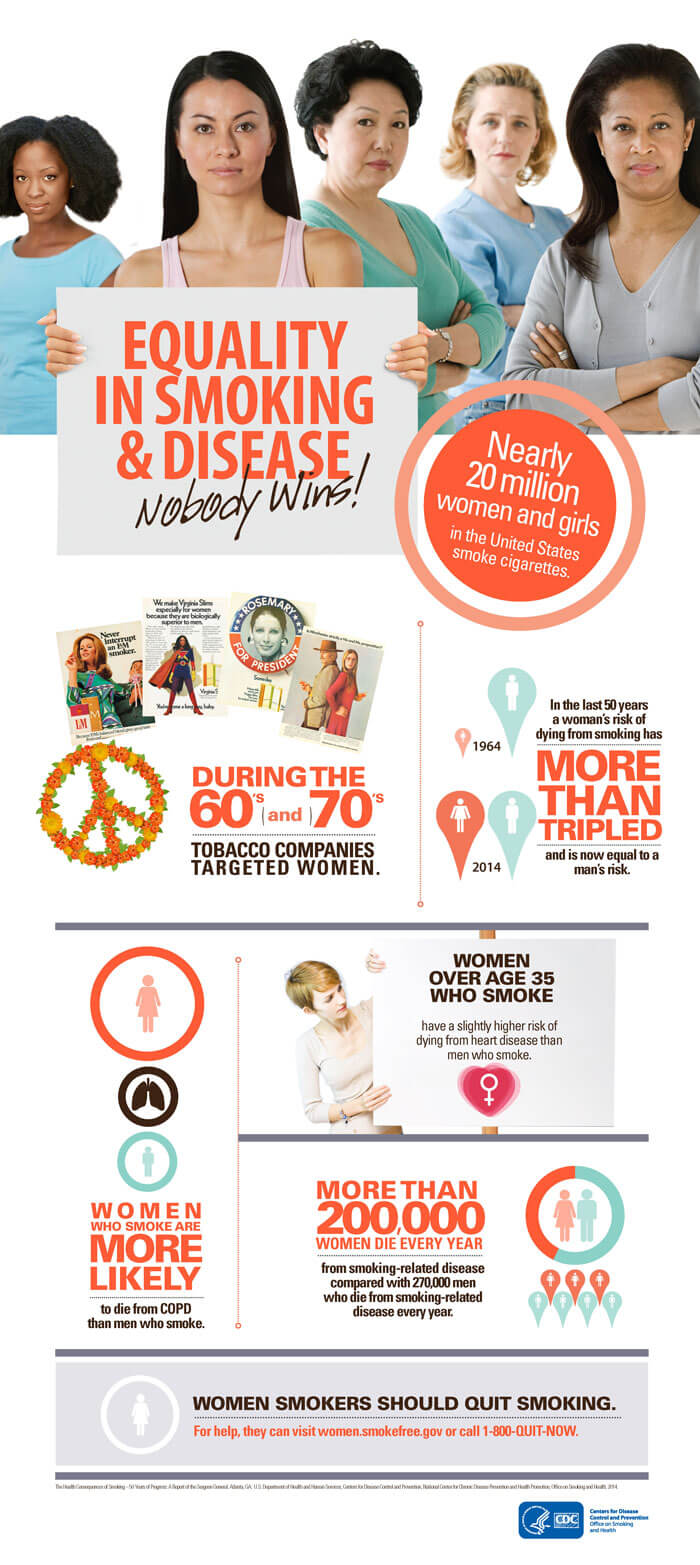 When the first Surgeon General’s Report on smoking was released in 1964, it caused a rapid drop in smoking among men. Yet smoking rates among women continued to go up in the years immediately following the report as tobacco companies aggressively marketed to women.
When the first Surgeon General’s Report on smoking was released in 1964, it caused a rapid drop in smoking among men. Yet smoking rates among women continued to go up in the years immediately following the report as tobacco companies aggressively marketed to women.
Documents from the tobacco industry show that cigarette companies created a line of slimmer cigarettes packaged in pastel colors to appeal to women, and implied that smoking could keep girls and women thin. They also used slogans, advertising, and sports sponsorships to tie their products to the women’s rights movement throughout the 1960s and 1970s.
Between 1959 and 2010, lung cancer risk for smokers rose dramatically. While men’s risk doubled, the risk among female smokers increased nearly ten-fold. Today, more women die from lung cancer than breast cancer.
WOMEN WHO ARE MOST VULNERABLE
The women most likely to smoke today are among the most vulnerable—those disadvantaged by low income, less education, and mental health disorders. Women in these groups are also less likely to quit smoking when they become pregnant and are more likely to start smoking again after delivery. This worsens the dangerous health effects from smoking on mothers and their children.
CESSATION IS POSSIBLE
Nicotine addiction can be difficult to overcome, but over half of smokers in the United States have already quit. There are many support programs and cessation tools available to smokers who want to quit, including nicotine replacement products such as patches and gum, prescription medication, and free coaching.
Benefits to women’s health from quitting smoking are enormous and immediate. Heart attack risks drop dramatically in the first year and, within five years, women who have quit smoking can see their stroke risk drop to that of a never smoker. In 10 years, a woman’s risk of dying from lung cancer is cut in half.
Most people find a combination of resources works best. Many smokers do not quit on their first attempt. Many need several tries to successfully quit, but the benefits are well worth it. Keep trying.
Women who want to quit smoking should ask their doctors for help, call 1-800-QUIT-NOW, or visit women.smokefree.gov and cdc.gov/tips.
